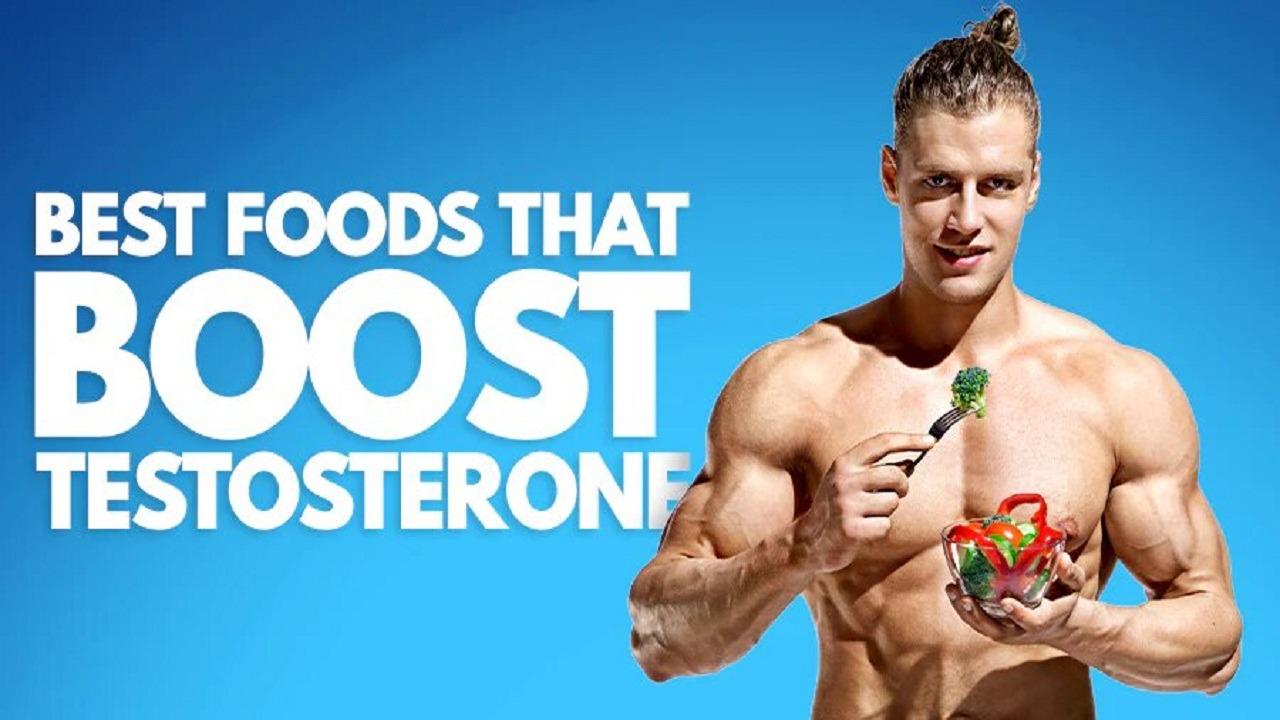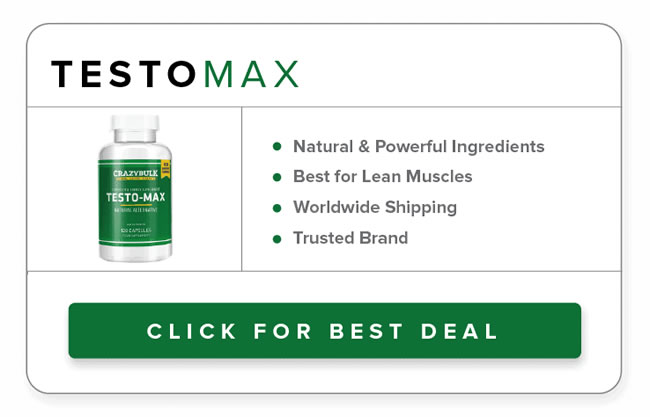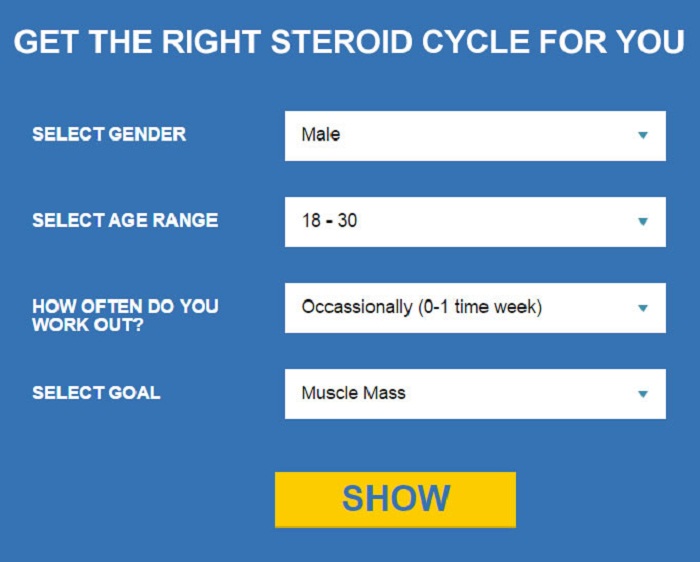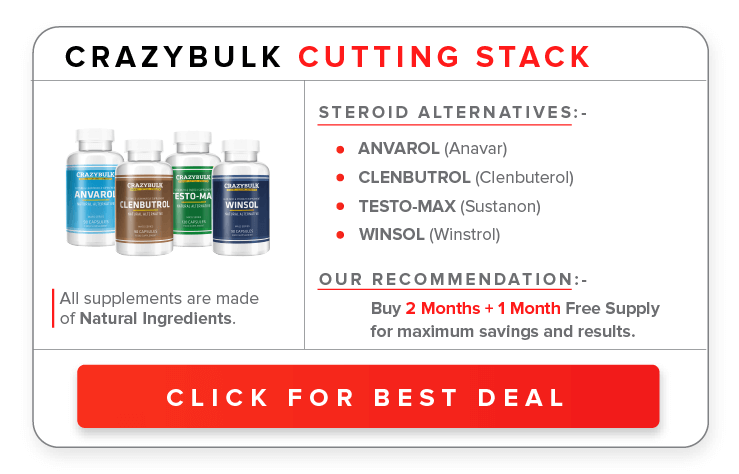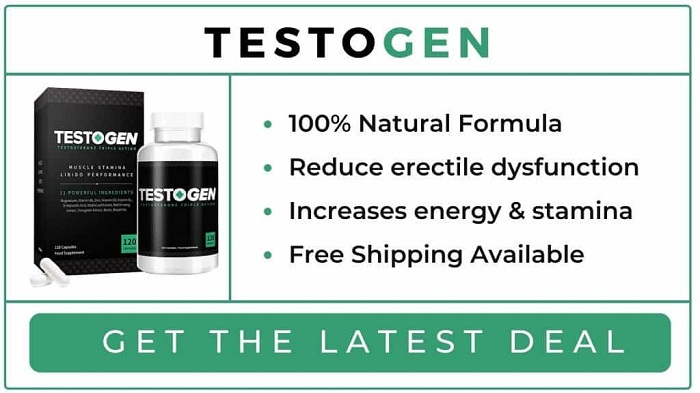Best Foods to Boost Testosterone
Contents
- 1 Best Foods to Boost Testosterone
- 2 Key Takeaways from the Article on “Best Foods to Boost Testosterone”
- 3 Importance of Testosterone:
- 4 Dietary Impact on Testosterone:
- 5 Best Foods for Testosterone:
- 6 Additional Dietary Tips:
- 7 Foods to Avoid:
- 8 Lifestyle Changes for Healthy Testosterone:
- 9 Consult a healthcare professional:
- 10 Remember:
- 11 Understanding Testosterone: The Engine of Masculinity
- 12 The Link Between Diet and Testosterone
- 13 Best Foods to Boost Testosterone
- 14 Seafood Feast:
- 15 Leafy Green Powerhouse:
- 16 Cruciferous Crusaders:
- 17 Bean Bonanza:
- 18 Healthy Fat Focus:
- 19 Fruity and Functional:
- 20 Nut and Seed Symphony:
- 21 Cocoa for a Cause:
- 22 Eggs-cellent Choice:
- 23 Additional Dietary Tips:
- 24 Dietary Cautions and Lifestyle Tweaks
- 25 Editor’s Recommendation: Natural and Safe Testosterone Boosters with Best Foods to Boost Testosterone
- 26 Remember: Consistency is Key
- 27 Frequently Asked Questions on Best Foods to Boost Testosterone:
Testosterone, the primary male sex hormone, plays a vital role in our well-being. It influences muscle mass, bone density, sex drive, mood, and even cognitive function. As men age, testosterone levels naturally decline, sometimes leading to a condition called hypogonadism. This can cause a range of symptoms like fatigue, decreased libido, and erectile dysfunction.
The good news? Dietary choices can significantly impact your testosterone levels. While there’s no magic bullet, incorporating specific foods rich in essential nutrients can support healthy testosterone production.
This article delves into the science behind testosterone and explores the best foods to include in your diet for optimal levels.
Related Article: Testosterone Boosting Foods | Testosterone Boosting Foods List
Key Takeaways from the Article on “Best Foods to Boost Testosterone”
Importance of Testosterone:
- Testosterone is a key male sex hormone affecting muscle mass, bone density, sex drive, mood, and cognitive function.
- Low testosterone levels can cause fatigue, decreased libido, and erectile dysfunction.
Dietary Impact on Testosterone:
- Certain foods rich in specific nutrients can support healthy testosterone production.
- There’s no single “magic bullet” but a combination of foods is beneficial.
Best Foods for Testosterone:
- Fatty Fish (salmon, tuna, mackerel): Rich in omega-3s and vitamin D.
- Shellfish (oysters, clams): Excellent source of zinc, crucial for testosterone production.
- Leafy Greens (spinach, kale): High in magnesium, which may support testosterone levels.
- Legumes (beans, lentils): Plant-based protein source with zinc and other beneficial nutrients.
- Healthy Fats (olive oil, avocado): May benefit testosterone levels.
- Fruits and Vegetables (berries, cherries): Antioxidants may protect testosterone-producing cells.
- Nuts and Seeds (almonds, walnuts): Source of healthy fats, protein, zinc, and magnesium.
- Dark Chocolate (at least 70% cacao): May improve blood flow, potentially supporting testosterone.
- Eggs: Whole eggs provide protein, healthy fats, vitamin D, and selenium.
Additional Dietary Tips:
- Maintain a healthy weight.
- Limit added sugars and refined carbohydrates.
- Stay hydrated.
- Consider dietary patterns like the Mediterranean diet.
Foods to Avoid:
- Excessive sugar and refined carbohydrates.
- Saturated and trans fats.
- Excessive alcohol.
- Soy products (intake moderation recommended if concerned).
Lifestyle Changes for Healthy Testosterone:
- Regular exercise (strength training and HIIT).
- Adequate sleep.
- Stress management.
- Limit environmental estrogens.
Consult a healthcare professional:
- If concerned about low testosterone levels.
- Before taking any supplements.
- To discuss if testosterone replacement therapy (TRT) is right for you.
Remember:
- Consistency is key for dietary changes to impact testosterone levels.
- Individual results may vary.
- A balanced approach with whole foods, exercise, and stress management is vital for overall well-being.
Understanding Testosterone: The Engine of Masculinity
Testosterone is an androgen, a group of hormones responsible for the development and maintenance of male characteristics. Produced primarily in the testicles, it regulates various bodily functions, including:
- Muscle growth and strength: Testosterone promotes muscle protein synthesis, helping build and maintain muscle mass.
- Bone health: It plays a crucial role in bone density and mineral content, preventing osteoporosis.
- Sex drive (libido): Testosterone fuels sexual desire and arousal in men.
- Sperm production: Healthy testosterone levels are essential for sperm production and male fertility.
- Red blood cell production: Testosterone stimulates the production of red blood cells, which carry oxygen throughout the body.
- Mood and cognition: Studies suggest testosterone may influence mood, energy levels, and some aspects of cognitive function.
Maintaining healthy testosterone levels is crucial for overall health and well-being throughout your life.
The Link Between Diet and Testosterone
Dietary choices significantly impact testosterone production. Certain nutrients play a key role in this process:
- Zinc: This mineral is essential for testosterone production. Shellfish, especially oysters, are a rich source of zinc.
- Vitamin D: This vitamin is crucial for overall health and may also support testosterone production. Fatty fish and fortified milk are good sources.
- Magnesium: This mineral is involved in various bodily functions, including testosterone synthesis. Leafy greens, nuts, and seeds are excellent sources.
- Healthy fats: Monounsaturated and polyunsaturated fats, found in olive oil, avocado, and nuts, may support healthy testosterone levels.
- Antioxidants: Antioxidants like those found in fruits, vegetables, and cocoa can protect testosterone-producing cells from damage.
Best Foods to Boost Testosterone
Let’s explore some of the best foods to boost testosterone production:
Seafood Feast:
- Fatty Fish (Salmon, Tuna, Mackerel, Sardines): These superstars are brimming with omega-3 fatty acids, particularly eicosapentaenoic acid (EPA) and docosahexaenoic acid (DHA). Studies suggest these fats may improve blood flow, reduce inflammation, and potentially support testosterone production. Additionally, fatty fish are excellent sources of vitamin D, crucial for overall health and potentially linked to testosterone levels. Aim for two servings per week, baked, grilled, or poached for maximum nutrient retention.
- Shellfish (Oysters, Clams, Mussels, Lobster): Oysters are legendary for their high zinc content. Just a few oysters can provide your daily recommended intake of zinc, a mineral essential for testosterone production. Other shellfish like clams, mussels, and lobster are also good sources of zinc and vitamin D. Enjoy them steamed, grilled, or in flavorful seafood chowders.
Leafy Green Powerhouse:
- Dark, Leafy Greens (Spinach, Kale, Swiss Chard): These vibrant greens are a goldmine of magnesium, a mineral that plays a vital role in over 300 bodily functions, including testosterone production. Studies suggest that men with higher magnesium intake tend to have higher testosterone levels. Include a generous serving of dark leafy greens in your salads, and stir-fries, or even blend them into smoothies for a nutrient boost.
Cruciferous Crusaders:
- Broccoli, Cauliflower, Brussels Sprouts: These cruciferous vegetables contain unique compounds called indoles. Indoles may help regulate testosterone metabolism by promoting the breakdown of estrogen, potentially leading to a healthier testosterone-to-estrogen ratio. Enjoy them roasted, steamed, or stir-fried for a delicious and testosterone-supportive side dish.
Bean Bonanza:
- Legumes (Beans, Lentils, Chickpeas): Beans are a nutritional powerhouse, packed with protein, fiber, zinc, and other essential nutrients. Studies suggest that a diet rich in plant-based protein may support healthy testosterone levels. Legumes are a versatile and affordable protein source. Explore different varieties like kidney beans, black beans, pinto beans, chickpeas, and lentils in soups, stews, salads, or even dips like hummus.
Healthy Fat Focus:
- Olive Oil: Extra virgin olive oil is rich in monounsaturated fats, particularly oleic acid. Studies suggest that this type of fat may benefit testosterone levels. Use olive oil for cooking, drizzling on vegetables, or incorporating it into salad dressings. Opt for cold-pressed extra virgin olive oil for the most health benefits.
- Avocado: This creamy fruit is a gift that keeps on giving. It provides healthy fats, fiber, and vitamin D, all of which may contribute to healthy testosterone production. Enjoy avocado slices on toast, mashed in guacamole, or added to salads and sandwiches for a satisfying and nutritious addition.
Fruity and Functional:
- Berries, Cherries, and Pomegranates: These brightly colored fruits are loaded with flavonoids, a type of antioxidant. Antioxidants can help protect testosterone-producing cells from damage caused by free radicals. Berries, cherries, and pomegranates are delicious on their own, perfect for smoothies, or a vibrant topping for yogurt and oatmeal.
Nut and Seed Symphony:
- Nuts and Seeds (Almonds, Cashews, Walnuts, Pumpkin Seeds, Sunflower Seeds): This diverse group offers a wealth of health benefits. They are excellent sources of healthy fats, protein, zinc, and magnesium, all of which may contribute to healthy testosterone levels. Enjoy a handful of mixed nuts and seeds as a snack, sprinkle them on salads or yogurt, or use them as a healthy topping for oatmeal. Opt for raw or dry-roasted nuts and seeds to avoid added sugars and unhealthy fats.
Cocoa for a Cause:
- Dark Chocolate (at least 70% cacao): Dark chocolate contains flavanols, a type of antioxidant that may improve blood flow. Some studies suggest that improved blood flow may potentially support testosterone production. However, it’s important to choose dark chocolate with a high cacao content (at least 70%) and limit portion sizes due to the sugar content. Enjoy a small square of dark chocolate after dinner for a satisfying and potentially testosterone-supportive treat.
Eggs-cellent Choice:
- Eggs: Whole eggs are a complete protein source, meaning they contain all nine essential amino acids your body needs. They are also a good source of healthy fats, vitamin D, and selenium. Studies suggest that these nutrients may contribute to healthy testosterone production. Enjoy eggs cooked in various ways, from scrambled and omelets to poached and hard-boiled, for a versatile and nutritious breakfast option or a satisfying post-workout snack.
Additional Dietary Tips:
- Maintain a Healthy Weight: Obesity can contribute to low testosterone levels. Aim for a healthy weight through a balanced diet and regular physical activity. Consult a healthcare professional or registered dietitian for personalized guidance on achieving and maintaining a healthy weight. They can help you create a safe and effective weight loss plan if needed.
- Limit Added Sugars and Refined Carbohydrates: Excessive intake of added sugars and refined carbohydrates can lead to blood sugar spikes and insulin resistance. This hormonal imbalance can negatively impact testosterone production. Focus on whole grains like brown rice, quinoa, and whole-wheat bread instead of refined grains like white bread and white pasta. Reduce sugary drinks and processed snacks in favor of fruits, vegetables, and whole foods.
- Stay Hydrated: Dehydration can lead to a decline in testosterone levels. Aim to drink plenty of water throughout the day to stay hydrated. In addition to water, unsweetened tea and coffee can also contribute to your daily fluid intake.
- Consider Dietary Patterns: Certain dietary patterns may be beneficial for testosterone levels. For example, the Mediterranean diet, rich in fruits, vegetables, whole grains, and healthy fats, has been linked to improved testosterone levels in some studies. Speak with a healthcare professional or registered dietitian to see if a specific dietary pattern might be right for you.
By incorporating these additional tips into your dietary routine, you can further support healthy testosterone levels and promote overall well-being. Remember, a balanced and sustainable approach is key to long-term success.
Dietary Cautions and Lifestyle Tweaks
While these foods can be powerful allies in your testosterone journey, it’s important to be mindful of some dietary aspects that can hinder your progress:
- Sugar and Refined Carbohydrates: Excessive sugar and refined carbohydrates can lead to blood sugar spikes and insulin resistance, potentially decreasing testosterone production. Limit sugary drinks, processed foods, and white bread in favor of whole grains and complex carbohydrates.
- Saturated and Trans Fats: These unhealthy fats can negatively impact testosterone levels. Opt for healthy fats like those found in olive oil, avocado, and nuts.
- Alcohol: Excessive alcohol consumption can decrease testosterone production and impair sperm quality. Moderate your alcohol intake or consider abstaining altogether.
- Soy Products: Some studies suggest that soy isoflavones may have weak estrogen-like effects and potentially lower testosterone levels in men. However, the evidence is inconclusive. If you’re concerned, moderate your intake of soy products.
Beyond diet, certain lifestyle adjustments can significantly impact your testosterone levels:
- Exercise Regularly: Engaging in regular strength training and high-intensity interval training (HIIT) can naturally boost testosterone production. Aim for at least 30 minutes of moderate-intensity exercise most days of the week.
- Get Enough Sleep: Chronic sleep deprivation can negatively affect testosterone levels. Aim for 7-8 hours of quality sleep each night.
- Manage Stress: Chronic stress can elevate cortisol levels, which can counteract testosterone’s effects. Practice stress-reduction techniques like meditation, yoga, or deep breathing exercises.
- Limit Environmental Estrogens: Certain chemicals can mimic estrogen’s effects and potentially disrupt testosterone production. Avoid plastics containing Bisphenol A (BPA) and choose natural cleaning products.
Editor’s Recommendation: Natural and Safe Testosterone Boosters with Best Foods to Boost Testosterone
When it comes to boosting testosterone levels naturally and safely, two standout products come to mind: Testo-Max and Testogen. These supplements are designed to support testosterone production using natural ingredients, making them ideal choices for those looking to enhance their muscle growth, strength, and overall performance.
Testo-Max: Testo-Max is a natural testosterone booster that harnesses the power of ingredients like D-aspartic acid, fenugreek extract, and zinc. D-aspartic acid is known for its ability to stimulate the production of testosterone, while fenugreek extract has been shown to enhance muscle strength and endurance. Zinc, on the other hand, is essential for maintaining healthy testosterone levels and overall immune function. Together, these ingredients work synergistically to help increase testosterone levels, leading to improved muscle growth, strength, and performance.
Testogen: Another top contender in the natural testosterone booster category is Testogen. This supplement contains a blend of ingredients that are known to support testosterone production, including D-aspartic acid, magnesium, and vitamin D3. D-aspartic acid plays a crucial role in the synthesis of testosterone, while magnesium is essential for maintaining healthy testosterone levels. Vitamin D3 is also important for testosterone production, as it helps regulate the expression of genes involved in testosterone synthesis. In addition to its testosterone-boosting benefits, Testogen can also help enhance energy levels, mood, and overall vitality.
Remember: Consistency is Key
While these dietary recommendations can significantly impact your testosterone levels, it’s important to remember that consistency is key. Aim to incorporate these foods regularly into your diet for optimal results.
It’s also crucial to note that individual results may vary. If you’re concerned about low testosterone levels, consult a healthcare professional. They can assess your individual situation, measure your testosterone levels, and provide personalized guidance.
Here are some additional points to consider:
- Supplements: Certain supplements like zinc, vitamin D, and magnesium may be beneficial for those with deficiencies. However, always consult a healthcare professional before taking any supplements to ensure safety and avoid potential interactions with medications.
- Testosterone Replacement Therapy (TRT): In some cases, a healthcare professional may recommend TRT to address low testosterone levels. This is a medical decision and should be made in consultation with a qualified professional.
By adopting a healthy lifestyle, incorporating these testosterone-boosting foods into your diet, and seeking professional guidance when needed, you can support healthy testosterone levels and optimize your overall well-being. Remember, a balanced approach that prioritizes whole foods, regular exercise, and stress management is the key to a healthy and fulfilling life.
Frequently Asked Questions on Best Foods to Boost Testosterone:
1. What are the best foods to increase testosterone levels?
There isn’t a single “magic bullet” food, but a variety of foods rich in specific nutrients can support healthy testosterone production. These include:
- Fatty fish (salmon, tuna, mackerel): Rich in omega-3 fatty acids and vitamin D (Mayo Clinic, https://www.mayoclinic.org/drugs-supplements-fish-oil/art-20364810).
- Shellfish (oysters, clams): Excellent source of zinc, crucial for testosterone production (National Institutes of Health, https://ods.od.nih.gov/factsheets/Zinc-HealthProfessional/).
- Leafy greens (spinach, kale): High in magnesium, which may support testosterone levels (Harvard T.H. Chan School of Public Health, https://www.ncbi.nlm.nih.gov/pmc/articles/PMC3958794/).
- Legumes (beans, lentils): Plant-based protein source with zinc and other beneficial nutrients (National Institutes of Health, https://www.ncbi.nlm.nih.gov/pmc/articles/PMC5872778/).
- Healthy fats (olive oil, avocado): May benefit testosterone levels (National Institutes of Health, https://pubmed.ncbi.nlm.nih.gov/33741447/).
- Fruits and vegetables (berries, cherries): Antioxidants may protect testosterone-producing cells (American Heart Association, https://www.ahajournals.org/doi/full/10.1161/01.cir.0000137822.39831.f1).
- Nuts and seeds (almonds, walnuts): Source of healthy fats, protein, zinc, and magnesium (National Institutes of Health, https://www.ncbi.nlm.nih.gov/pmc/articles/PMC5872778/).
- Dark chocolate (at least 70% cacao): May improve blood flow, potentially supporting testosterone (National Center for Complementary and Integrative Health, https://www.ncbi.nlm.nih.gov/pmc/articles/PMC6520706/).
- Eggs: Whole eggs provide protein, healthy fats, vitamin D, and selenium (Harvard T.H. Chan School of Public Health, https://www.hsph.harvard.edu/nutritionsource/food-features/eggs/).
2. How quickly will these foods increase my testosterone levels?
The impact of dietary changes on testosterone levels can vary depending on individual factors. It’s generally recommended to focus on consistent dietary changes for long-term benefits.
3. Should I take supplements to boost testosterone?
Consult a healthcare professional before taking any supplements. Certain supplements like zinc, vitamin D, and magnesium may be beneficial for those with deficiencies, but they may not necessarily boost testosterone levels in everyone (National Institutes of Health, https://www.ncbi.nlm.nih.gov/pmc/articles/PMC5872778/).
4. What foods should I avoid to maintain healthy testosterone levels?
- Excessive sugar and refined carbohydrates: Can lead to blood sugar spikes and potentially decrease testosterone production (Mayo Clinic, https://newsnetwork.mayoclinic.org/discussion/mayo-clinic-minute-keep-carbs-complex/).
- Saturated and trans fats: May negatively impact testosterone levels (National Institutes of Health, https://pubmed.ncbi.nlm.nih.gov/30084105/).
- Excessive alcohol: Can decrease testosterone production (National Institutes of Health, https://www.healthline.com/health/how-alcohol-affects-testosterone ncbi.nlm.nih.gov])).
- Soy products: Evidence on soy’s impact on testosterone is inconclusive. If concerned, moderate your intake (National Institutes of Health, https://www.ncbi.nlm.nih.gov/books/NBK80015/).
5. What lifestyle changes can I make to support healthy testosterone levels?
- Regular exercise: Strength training and high-intensity interval training (HIIT) may boost testosterone (Mayo Clinic, https://newsnetwork.mayoclinic.org/discussion/mayo-clinic-minute-low-testosterone-levels-can-affect-men/).
- Adequate sleep: Chronic sleep deprivation can negatively affect testosterone levels (National Sleep Foundation, https://www.ncbi.nlm.nih.gov/pmc/articles/PMC4445839/).
- Stress management: Chronic stress can elevate cortisol levels, which can counteract testosterone’s effects (Harvard Health Publishing, https://scholar.harvard.edu/files/jenniferlerner/files/sherman_lerner_et_al._in_press_testosterone_cortisol_and_attained_status_jpsp.pdf).
- Limit environmental estrogens: Avoid plastics containing Bisphenol A (BPA) and choose natural cleaning products (Environmental Working Group, https://www.ewg.org/areas-focus/toxic-chemicals/bpa).
